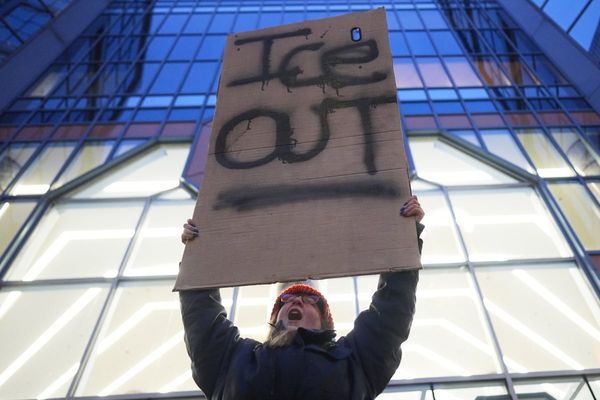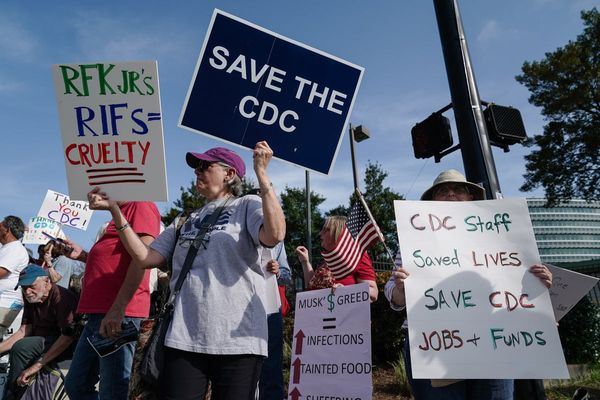
Labour has claimed Mark Fullbrook’s position as Downing Street chief of staff is no longer tenable after it was revealed that before his appointment he tried to change UK foreign policy by arranging for two cabinet ministers to meet Fathi Bashagha, a Libyan politician with links to the Russian Wagner Group.
The Guardian had previously reported that Fullbrook, as chief executive of Fullbrook Strategies, had lobbied on behalf of Bashagha, but the Sunday Times alleged he arranged for Bashagha to come to London in June, where he met the then business secretary, Kwasi Kwarteng, and the education secretary at the time, Nadhim Zahawi.
Neither minister registered the meetings, which seem to have been designed to persuade the British government to adopt a policy of broad neutrality in Libya and support Bashagha.
Soon after his visit to London, the foreign affairs select committee held a rare off-evidence session via satellite link with Bashagha.
The session was highly unusual given the committee was not conducting an inquiry into Libya at the time, it did not seem related to any of its other work and it largely gave Bashagha a platform to lobby for British support.
The committee members – few of whom attended the session – hardly challenged Bashagha’s claim to be the legitimate prime minister of Libya.
Libya is broadly divided between two sides: one based in Tripoli, dependent on Turkish support and led by Abdul Hamid Dbeibah, and the other based in the east and reliant on the support of Russia and the United Arab Emirates.
Before his visit to London, Bashagha had entered Tripoli expecting his arrival to foment an uprising in his support. However, he was forced to hastily retreat when the militia backing he sought failed to materialise.
Bashagha had formed an odd alliance of convenience with not only the powerful speaker of Libya’s house of representatives (HoR), Aguila Saleh, but also eastern Libya’s military strongman Khalifa Haftar, a man accused of war crimes.
Haftar’s Libyan Arab Armed Forces (LAAF) laid a bloody siege to Tripoli in 2019-20 with the support of thousands of Kremlin-affiliated Wagner Group mercenaries. The brutal and economically hugely damaging siege was only defeated when Turkey intervened to provide military training and equipment to the military forces of the government of national unity.
Bashagha’s claim to be prime minister of Libya derived from a vote of confidence decision issued by the HoR, and the recommendation of members of the high council of state (HCS). The HoR claims Dbeibah should have stood down after it was impossible to hold elections as planned in December.
The UK ambassador in Libya, Caroline Hurndall, has herself met Bashagha but the UK has adopted a broadly neutral position focusing on the need for both sides to agree the terms of national elections.
Kwarteng has previously defended Haftar, writing a pamphlet calling for Britain to swing behind the strongman. He did so after a visit to Libya, where he met Haftar in conjunction with Leo Docherty, now a Foreign Office minister responsible for Europe.
Fullbrook has defended himself by saying he has recused himself of any responsibility for Libya policy, but at least nine countries – Italy, France, the UAE, Russia, Turkey, Germany, Egypt, Qatar and Tunisia – have a direct interest in the internationalised Libyan power struggle, making it hard for Fullbrook to compartmentalise his involvement in Libya.
In a joint letter to Liz Truss, Labour’s deputy leader, Angela Rayner, and the shadow foreign secretary, David Lammy, warned the prime minister that Fullbrook’s “continued presence poses not just a potential security risk but an ongoing threat to the credibility and prospects of UK diplomacy and ethical standards in government”. There is now “no place in No 10” for Fullbrook, they said.
Labour is calling for a full and independent investigation into the episode and its implications for UK diplomacy, as well as ethics and propriety in government. This includes the role and conduct of ministers and officials in facilitating Bashagha’s visit and subsequent engagement, in apparent contravention of the established UK diplomatic position, as well as the failure of scrutiny and process in Downing Street.
“This raises grave questions about the involvement of the prime minister’s own chief of staff in murky paid lobbying efforts for foreign clients,” Lammy said.
“This was work undertaken to overturn Britain’s diplomatic position on behalf of an overseas entity, through visits that were not approved by the Foreign Office or No 10 and meetings with ministers that were not declared.”
Truss has not appointed an ethics adviser on the ministerial code, so the propriety of the ministers’ meetings in apparent conflict with official UK foreign policy may not be officially investigated.
Fullbrook’s position was further destabilised on Sunday when he was also forced to recuse himself from discussions about changes to the government’s smoking strategy due to his past as a tobacco industry lobbyist.
Fullbrook worked on behalf of British American Tobacco and Philip Morris, the maker of Marlboro cigarettes.
The government is considering shelving an action plan on tackling smoking, according to media reports.







